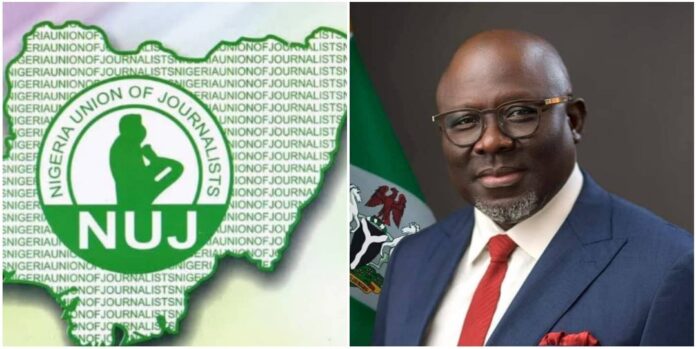As Governor Sheriff Oborevwori celebrates two years in office, the Delta State Council of the Nigeria Union of Journalists (NUJ) has highlighted a gap in the administration’s relationship with the press, saying the media is being sidelined despite the government’s notable achievements.
In a joint statement released by NUJ State Chairman, Comrade Churchill Oyowe, and Secretary, Comrade Victor Sorokwu, the union acknowledged that Governor Oborevwori’s “MORE Agenda” has led to several visible successes. These include the payment of the new minimum wage, regular salaries and pensions, infrastructure projects, and support programs for youth and women.
But while the NUJ gave credit for these gains, they warned that failing to involve the media meaningfully could harm the very progress being celebrated. “The governor’s achievements speak volumes, but without proper media engagement, the public may not hear the full story—or believe it,” the union said.
Their major concern is not about what the government is doing, but how it is communicating. According to the NUJ, media relations under this administration have become “selective, inconsistent, and not well organized.”
Although the Oborevwori-led government recently doubled stipends for some journalists—a move many saw as supportive—the NUJ said this alone does not amount to proper media engagement. “Appreciated as it is, financial support is not a substitute for access, dialogue, and regular briefings,” the statement added.
The NUJ also reminded the government of the media’s constitutional role in holding public officials accountable, referring to Section 22 of the Nigerian Constitution. They pointed out that past governments held quarterly press briefings and consistent media interactions, which helped shape public confidence.
“The current administration must not abandon this vital tradition,” the NUJ cautioned. “When the press is ignored, the people are disconnected.”
Rather than treating the statement as criticism, the union said it was offering a professional reminder. “This isn’t about confrontation. It’s about strengthening democracy,” they noted, urging the governor to reintroduce formal press briefings, organize state-wide media parleys, and allow for inclusive media participation.
The NUJ concluded with an open hand for partnership, calling on the Oborevwori administration to embrace openness and transparency—not just through policy, but through practice.
While the government of Delta State may be on the right track with its development goals, the NUJ believes that telling the story matters just as much as making the change. And that can only happen when journalists are properly engaged—not selectively included.



